
In New Zealand, the term Black Budget refers to the government budget of 26 June 1958, in which Minister of Finance Arnold Nordmeyer increased taxes on beer, tobacco, cars and petrol.

In New Zealand, the term Black Budget refers to the government budget of 26 June 1958, in which Minister of Finance Arnold Nordmeyer increased taxes on beer, tobacco, cars and petrol.
The second Labour government took office in 1957, the 32nd Parliament. Within a year, the government was confronted with a balance of payments crisis caused by the collapse of the price of butter in Britain (New Zealand's largest export market at the time). [1] Nordmeyer's colleagues were reluctant to cut government spending or break expensive election promises, so Nordmeyer was left with little option but to raise taxes, which was recommended by both the Treasury and Prime Minister Walter Nash (himself a former Minister of Finance). [2] The budget increased social security benefits but was very unpopular, not least with Labour's traditional working-class supporters.[ citation needed ]
The term 'black budget' is believed to have been coined by union leader Fintan Patrick Walsh, but was taken up by the National Party opposition, and became the commonly used term for the budget. Rises in income tax levels hurt single earners and childless families the most. [2]
The budget was prepared by the cabinet finance committee of Walter Nash, Arnold Nordmeyer, Phil Holloway and Tom Skinner. Member of Parliament Warren Freer was told by Holloway that it was Nash rather than Nordmeyer who fought for the "draconian measures" finally adopted. While export prices had "had a real bashing" with butter at half its normal level and wool and meat also down, Holloway and Skinner felt that prices of both wool and meat were likely to rise and drastic measures were not fully justified. In caucus the measures were criticised by Michael Moohan, Frank Kitts and Bill Fox and, despite his cabinet position, Moohan continued to agitate against the beer price rise in private. Philip Connolly said of Nash, who had said that there was no alternative, that he was "telling a bloody big lie" as Nash was rubbing the gold cross on his watch chain when he said it. Freer saw some saving grace in the tightening of import controls and emphasis on local manufacture which boosted employment. [3]
The government's popularity never recovered from the budget, which is generally believed to have cost it the 1960 election. Nordmeyer was forever tainted by the 'black budget', which gave him a reputation as a puritanical 'wowser' who was opposed to simple working class pleasures such as automobiles, beer and cigarettes. [2] Despite this, he became the leader of the Labour Party in 1963, but was replaced by the more popular Norman Kirk only two years later.
In 2010, DB Breweries ran an advertising campaign attributing the creation of one of its brands, DB Export Gold to the increased taxes on beer introduced by the 'black budget'. However, the brewery was forced to pull the campaign from television and internet in February 2011 (though newspaper ads were unaffected) after the New Zealand Advertising Standards Authority partially upheld a complaint laid by Progressive Party leader Jim Anderton that the campaign was "unethical, inaccurate and distorted history" as little beer was then imported to New Zealand and the budget raised the excise only to the same as local beers. [4]

Sir Walter Nash was a New Zealand politician who served as the 27th prime minister of New Zealand in the Second Labour Government from 1957 to 1960. He is noted for his long period of political service, having been associated with the New Zealand Labour Party since its creation.

Sir Arnold Henry Nordmeyer was a New Zealand politician and Presbyterian minister. As a member of Parliament (MP) he played a crucial role in the Labour Party, serving from 1935 to 1969. He served as minister of finance (1957–1960) and later as leader of the Labour Party and leader of the Opposition (1963–1965). Although he was a prominent statesman, Nordmeyer never ascended to the role of prime minister.
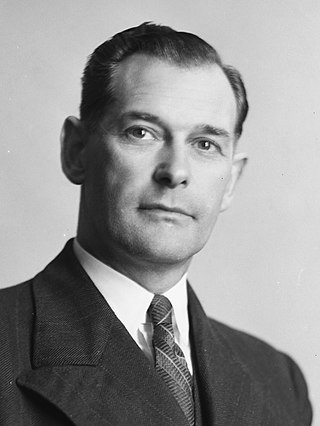
The 1960 New Zealand general election was a nationwide vote to determine the shape of the New Zealand Parliament's 33rd term. It saw the governing Labour Party defeated by the National Party, putting an end to the short second Labour government.

The 1963 New Zealand general election was a nationwide vote to determine the shape of New Zealand Parliament's 34th term. The results were almost identical to those of the previous election, and the governing National Party remained in office.

Steinlager is a lager-style beer brewed by Lion in East Tāmaki, a suburb of Auckland, New Zealand. It has won several prizes, notably at beer competitions in the United States, and is New Zealand's biggest export beer.

The Second National Government of New Zealand was the government of New Zealand from 1960 to 1972. It was a conservative government which sought mainly to preserve the economic prosperity and general stability of the early 1960s. It was one of New Zealand's longest-serving governments.
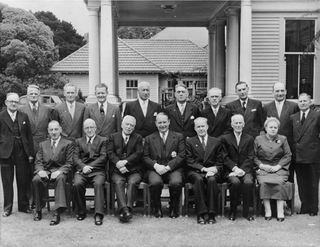
The Second Labour Government of New Zealand was the government of New Zealand from 1957 to 1960. It was most notable for raising taxes on alcohol, cigarettes and petrol, a move which was probably responsible for the government lasting for only one term. It was headed by the Prime Minister Walter Nash.

Michael Moohan was a New Zealand politician of the Labour Party. Seldom known to anyone by anything other than "Mick", he was a major organisational figure in the Labour Party's early history and went on to become a significant politician in his own right as an MP and cabinet minister.

Warren Wilfred Freer was a New Zealand politician and member of the Labour Party. He represented the Mount Albert electorate from 1947 to 1981. He is internationally known as the first Western politician ever to visit the People's Republic of China.
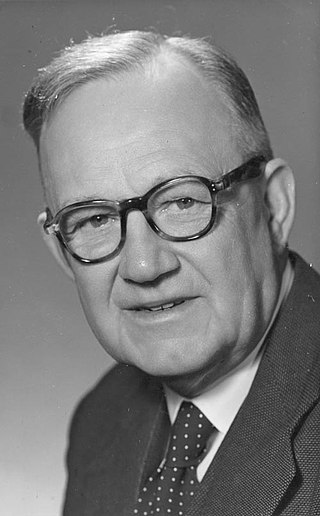
William Theophilus Anderton was a New Zealand politician of the Labour Party. He served as Minister of Internal Affairs in the second Labour Government, from 1957 to 1960.
Brooklyn was a New Zealand parliamentary electorate in Wellington city from 1946 to 1954. It was represented by two prominent members of the Labour Party: Peter Fraser, who was Prime Minister (1940–1949), and Arnold Nordmeyer, who was later Minister of Finance (1957–1960).
Heineken N.V. is a Dutch brewer which owns a worldwide portfolio of over 170 beer brands, mainly pale lager, though some other beer styles are produced. The two largest brands are Heineken and Tecate; though the portfolio includes Amstel, Fosters, Sagres, Cruzcampo, Skopsko, Affligem, Żywiec, Starobrno, Zagorka, Zlatý Bažant, Laško and Birra Moretti.
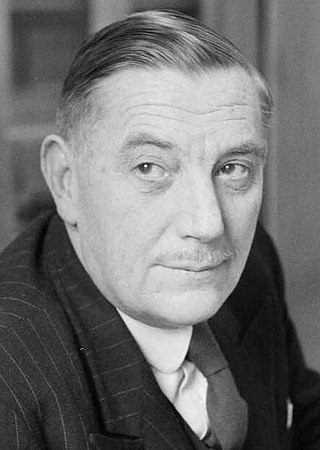
Raymond Boord was a New Zealand politician of the Labour Party.

William Arthur Fox was a New Zealand politician of the Labour Party, and a Cabinet minister in the Second Labour Government of 1957–1960.
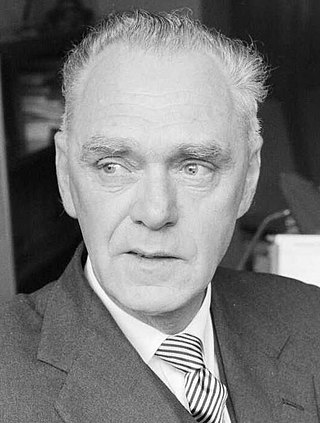
John Mathison was a New Zealand politician of the Labour Party. He was famed for his skills as a chairman and well known for his "unmistakably Scottish" accent, eloquent speeches and dry sense of humour.
The Social Security Act 1938 is a New Zealand Act of Parliament concerning unemployment insurance which established New Zealand as a welfare state. This act is important in the history of social welfare, as it established the first ever social security system in the world.
The 1965 New Zealand Labour Party leadership election was held on 9 December 1965 to determine the future leadership of the New Zealand Labour Party. The election was won by Lyttelton MP Norman Kirk.

The 1951 New Zealand Labour Party leadership election was held on 17 January to choose the fifth leader of the New Zealand Labour Party. The election was won by Hutt MP and incumbent deputy-leader Walter Nash.

The 1954 New Zealand Labour Party leadership election was held on 23 June 1954 to determine the future leadership of the New Zealand Labour Party. The election was won by Hutt MP Walter Nash, the incumbent leader.

The 1963 New Zealand Labour Party leadership election was held on 26 February to choose the sixth leader of the New Zealand Labour Party. The election was won by Island Bay MP Arnold Nordmeyer.